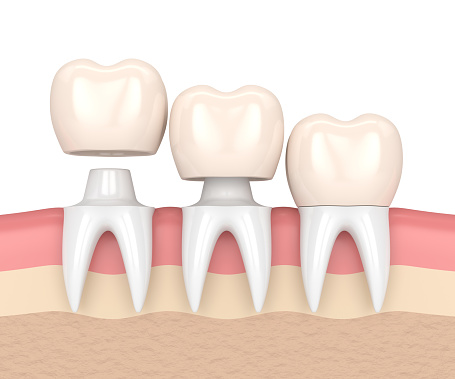Dental Crowns Huntington Beach, CADental Crown at Surf City Oral and Maxillofacial Surgery in Huntington Beach, CA  If you have a tooth decay problem, you might have heard about dental crowns from your dentist. Dental crowns are among the standard solutions to tooth decay problems worldwide. If you have a tooth decay problem, you might have heard about dental crowns from your dentist. Dental crowns are among the standard solutions to tooth decay problems worldwide. Dentists may apply crowns to cover a decaying tooth or to hide an irregularly shaped tooth. Regardless of the reason, you may want to know about the dental crown procedure, the different types of dental crowns, and their uses before your next visit to Surf City Oral and Maxillofacial Surgery. What is a Dental Crown?A dental crown is a cap-like structure that fits over a damaged tooth. Dentists recommend using dental crowns to overcome tooth sensitivity and decay problems. Occasionally, oral surgeons perform surgical procedures on infected teeth and place crowns for protection. Dental crowns have various types. The costs, materials, and durability depend on your chosen type. Dental Crown MaterialsDental crowns have different materials to suit the budget and needs of the patients. Typical dental crown materials include:
Porcelain, ceramic, metal, and zirconia crowns are the most common worldwide. While this may be valid, metal crowns may have allergic reactions in some people. While they cost relatively less, you may notify your dentist about allergies before choosing a specific dental crown material. How to Take Care of Dental CrownsLooking after dental crowns can be tricky. You may follow the tips listed to avoid damaging your dental crown.
Schedule an Appointment TodayContact Surf City Oral and Maxillofacial Surgery at 657-384-2787 today to schedule a consultation. |
|
|